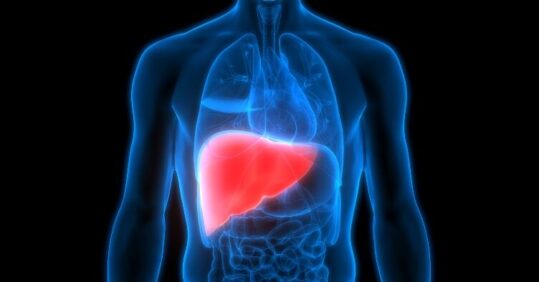Liver drug offers hope for future Covid outbreaks

An off-patent drug used to treat liver disease could offer a future treatment for Covid-19, research has suggested.
Scientists at the University of Cambridge have found that ursodeoxycholic acid (UDCA) can be repurposed to prevent or reduce the severity of Covid-19 infections.
The drug targets the host cells rather than the virus cells themselves and can effectively ‘lock’ the door through which SARS-CoV-2 enters cells. Because of this, the researchers expect that UDCA will protect against future variants of Covid-19.
Related Article: Advice on Guillain-Barré risk for adult RSV vaccine updated by MHRA
The findings, which offer an alternative for patients for whom vaccines are ineffective or inaccessible, are published in Nature.
UDCA is an off-patent drug used to treat a form of liver disease known as primary biliary cholangitis. The researchers, working with colleagues at the Universities of Liverpool and Newcastle and the Berlin Institute of Health, showed that UDCA was able to close the cell to the Covid-19 virus.
A molecule known as FXR directly regulates the viral ‘doorway’ ACE2, a receptor on the cell surface, by effectively opening and closing the door to the cell. Using the drug UDCA ‘turns down’ FXR and closes the doorway so the virus cannot enter the cell.
Once the researchers had shown this was happening in lab-grown cells, they tested their findings in donor organs, animals and patients. The drug successfully prevented Covid-19 from entering cells in each case.
A full-scale clinical trial was not possible, but the researchers examined two cohorts of people, one group who were already taking UDCA for liver conditions and one group who were not, and looked at data on the Covid-19 outcomes for each group. They found that patients receiving UDCA were less likely to develop severe Covid-19 and be hospitalised.
Related Article: Parents need repeat contact and more time with practice nurses on childhood jabs
Professor Andrew Owen from the University of Liverpool said: ‘Although we will need properly-controlled randomised trials to confirm these findings, the data provide compelling evidence that UDCA could work as a drug to protect against COVID-19 and complement vaccination programmes, particularly in vulnerable population groups.’
Dr Fotios Sampaziotis, from the University of Cambridge and Addenbrooke’s Hospital, added: ‘Vaccines protect us by boosting our immune system so that it can recognise the virus and clear it, or at least weaken it. But vaccines don’t work for everyone – for example, patients with a weak immune system – and not everyone has access to them. Also, the virus can mutate to new vaccine-resistant variants.’
‘We’re interested in finding alternative ways to protect us from SARS-CoV-2 infection that are not dependent on the immune system and could complement vaccination,’ he said.
The drug comes in tablet form, is cheap to produce and can be made quickly in large quantities and is easily stored or shipped so can be rapidly deployed during outbreaks, especially against vaccine-resistant variants. The researchers say they are optimistic that UDCA could become an ‘important weapon’ against Covid-19.
Related Article: NHSE confirms dates and eligibility for autumn Covid and flu jabs

See how our symptom tool can help you make better sense of patient presentations
Click here to search a symptom




